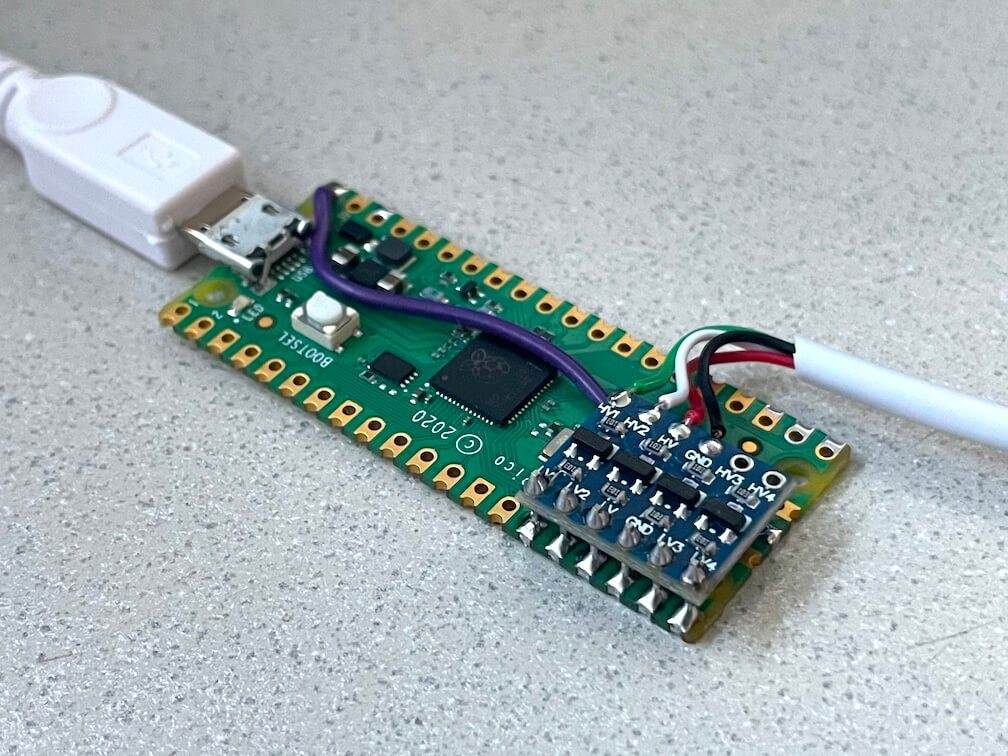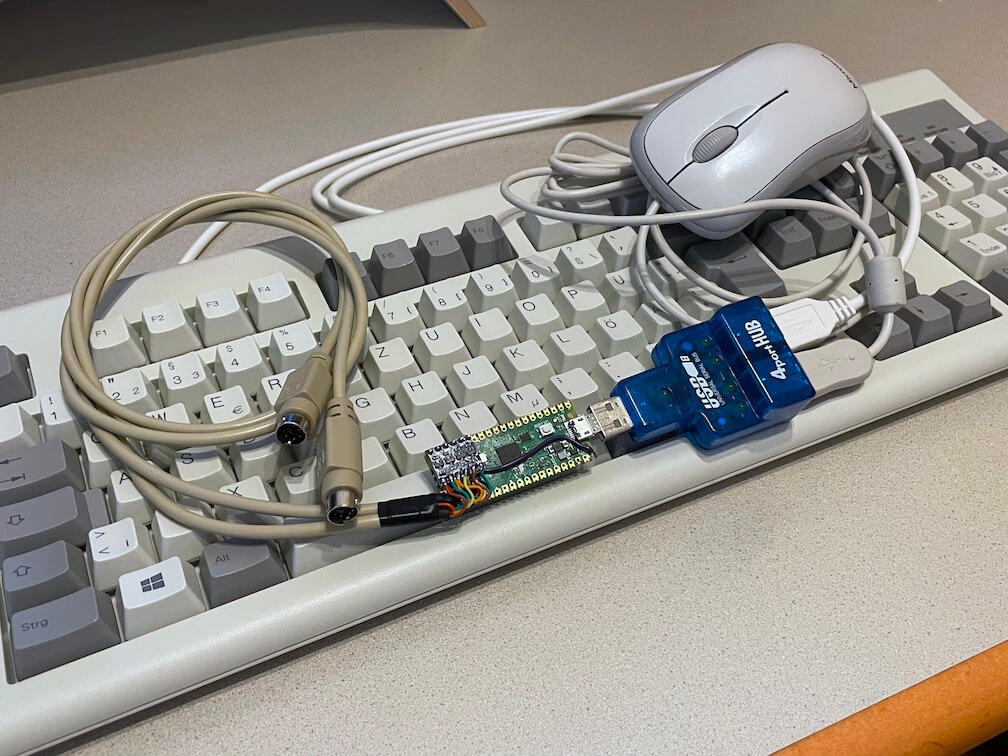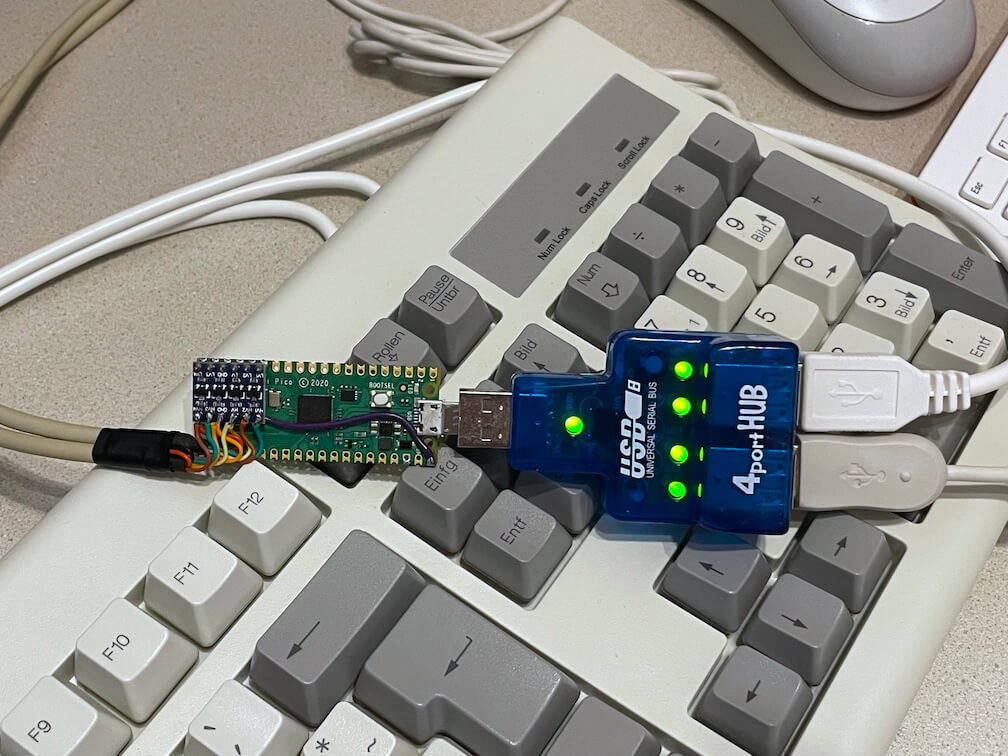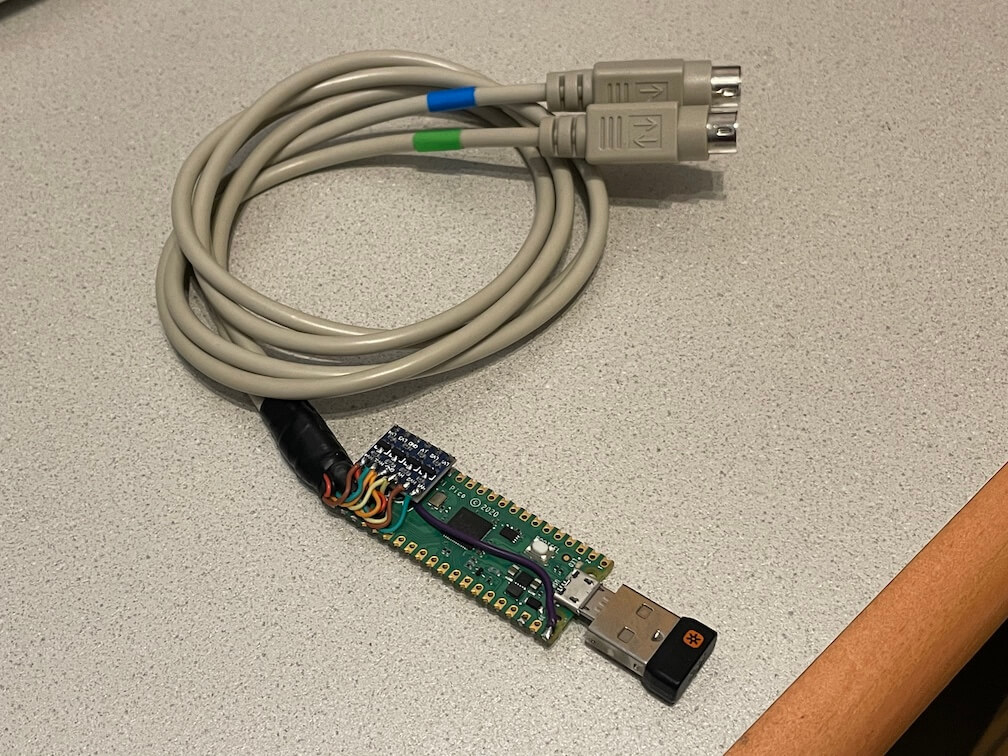ps2x2pico
 ps2x2pico copied to clipboard
ps2x2pico copied to clipboard
USB keyboard/mouse to PS/2 interface converter using a Raspberry Pi Pico
ps2x2pico
USB keyboard/mouse to PS/2 interface converter using a Raspberry Pi Pico
 |
 |
 |
 |
|---|
Keyboard only (incl. PC-XT) variant: https://github.com/No0ne/ps2pico
PicoMiteVGA variant: https://github.com/No0ne/hid2cdc
PiKVM integration:
- https://docs.pikvm.org/pico_hid/
- https://docs.pikvm.org/pico_hid_bridge/
Usage
- Download
ps2x2pico.uf2from https://github.com/No0ne/ps2x2pico/releases - Copy
ps2x2pico.uf2to your Pi Pico by pressing BOOTSEL before pluggging in. - 3.3V/5V conversion is done using a bi-directional level shifter: https://learn.sparkfun.com/tutorials/bi-directional-logic-level-converter-hookup-guide/
- Afterwards connect a USB keyboard and/or mouse using an OTG-adapter and optional USB hub.
- Also works with wireless keyboards and mice with a dedicated USB receiver.
_________________
| |
Pico GPIO11 ______| LV1 HV1 |______ PS/2 keyboard data
Pico GPIO12 ______| LV2 HV2 |______ PS/2 keyboard clock
Pico GPIO13 ______| LV HV |______ PS/2 5V + Pico VBUS
Pico GND ______| GND GND |______ PS/2 GND
Pico GPIO14 ______| LV3 HV3 |______ PS/2 mouse data
Pico GPIO15 ______| LV4 HV4 |______ PS/2 mouse clock
|_________________|
⚠️ Please note that some older motherboards have non-resettable fuses rated under 300mA.
Check the power consumtion of your keyboard/mouse/hub first before plugging in!
Pinout diagram
Plug (device) Socket (motherboard)
_ _ _ _
= = = =
= 5 # 6 = = 6 # 5 =
= 3 # 4 = = 4 # 3 =
= = = =
= 1 2 = = 2 1 =
= = = =
~ ~ ~ ~
- Data
- unsed (mouse data on dualport)
- GND
- +5V
- Clock
- unused (mouse clock on dualport)
Troubleshooting
You can hook up a USB serial adapter to GPIO0 for additional debugging output. The serial settings are 115200 baud, 8 data bits and no parity. You can also use another Pico running the pico-uart-bridge for this.
⚠️ If you have a YD-RP2040 you need to bridge all three pads of the diode near the USB-C port as seen here: https://github.com/No0ne/ps2x2pico/issues/33#issuecomment-2066736110 Otherwise no power would be sent to the devices connected to the USB-C port.
Build
(update to the latest TinyUSB release first)
export PICO_SDK_PATH=/path/to/pico-sdk
cd $PICO_SDK_PATH/lib/tinyusb
git checkout 0.16.0
cd /path/to/ps2x2pico
mkdir build
cd build
cmake ..
make
Resources
- https://github.com/No0ne/ps2pico
- https://wiki.osdev.org/PS/2_Keyboard
- https://wiki.osdev.org/PS/2_Mouse
- https://wiki.osdev.org/Mouse_Input
- https://wiki.osdev.org/%228042%22_PS/2_Controller
- http://www-ug.eecg.toronto.edu/msl/nios_devices/datasheets/PS2%20Keyboard%20Protocol.htm
- http://www-ug.eecg.utoronto.ca/desl/nios_devices_SoC/datasheets/PS2%20Mouse%20Protocol.htm
- Archive.org links for the dead links in the pages above